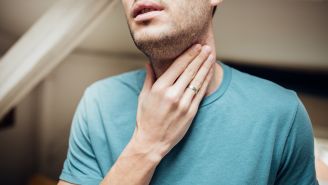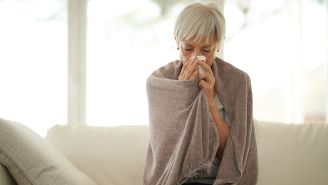Updated on March 8, 2024.
There’s nothing like warm spring weather to make you want to step outside. But there’s also nothing like nasty spring pollen allergies to make you want to turn around and go right back in. If you have seasonal allergic rhinitis—commonly known as hay fever—you likely understand the love/hate relationship with the great outdoors.
"Allergies are not just a minor problem," says Mark Schecker, MD, an allergist and immunologist with Grand Strand Medical Center in Myrtle Beach, South Carolina. "A lot of people minimize their allergies. We know from studies that allergies have a significant impact on people's quality of life."
Specifically, the spring air brings a rush of grass and tree pollen, triggering allergy symptoms such as sneezing, itchy and irritated eyes, and a runny nose. These symptoms can disrupt sleep, concentration, productivity at work, and generally make day-to-day activities tougher than usual.
But there’s more. Due to climate change, pollen seasons now start sooner, last longer, and produce more pollen. In the United States, total pollen amounts increased 21 percent between 1990 and 2018, according to a study published in PNAS in 2021.
But there are ways to ease your springtime allergy symptoms. In fact, here are some spring allergy relief strategies to help you enjoy the season—without all the coughing, itching and sneezing.
Stay ahead of symptoms. The Asthma and Allergy Foundation of America (AAFA) recommends beginning a medication routine before allergy symptoms start. That’s because medication prevents your body from releasing histamine and other chemicals that cause symptoms.
Many treatment options are available, but Schecker recommends nasal steroid sprays and antihistamines. Most medications can be purchased over the counter. Consult your healthcare provider (HCP) about the best options for you.
Pick the right time to venture outside. Certain times of the day are worse for allergies than others, so check your area's pollen counts before heading out the door. “Obviously when the pollen counts are higher, your chances of having symptoms are going to be much greater,” says Schecker.
Whenever possible, plan outdoor activities when pollen counts tend to be lowest, typically in the late afternoon. Pollen counts are greatest in the early morning and strong winds can blow pollen everywhere, so it may be best to say inside during these times.
Keep your windows closed. It can be tempting to open the windows on a breezy day, but this can bring unwanted pollen into your home or car. Instead, turn on air conditioning, which cleans and cools the air. “Air conditioning does a really good job at filtering out pollen,” says Schecker. You can also use an air purifier in your home to clear the air of allergens.
Cover up. "Anything that you can do to cover the surfaces or areas where the pollen is going to be entering the body is going to be a help," says Schecker. Hats and sunglasses are simple ways to protect your eyes from irritation and prevent pollen from clinging to your hair, where it can easily be brought back into your home. Also try wearing a mask or tying a bandana over your nose while mowing the lawn to prevent allergen particles from entering your airways. For this same reason, it’s best to avoid hanging sheets and towels outside to dry when pollen is bad.
Rinse away the pollen. If you bring pollen into your home on your hair, skin, or clothing, symptoms can persist long after you've stepped inside. Whenever possible after spending time outdoors, the American Academy of Allergy Asthma and Immunology (AAAAI) recommends taking a shower, shampooing your hair, and changing clothes.
Get help for persistent symptoms. Feel like you’ve tried everything and still can't get relief? One thing Schecker doesn’t recommend is giving up. If medication isn’t making much of a difference, he advises talking to your HCP about allergen immunotherapy. This can mean getting allergy shots or sublingual immunotherapy, during which you swallow a daily tablet containing the allergen. Both help train your immune system to develop a tolerance to allergens. Over time, they should ease your symptoms and may lessen your need for other medications.







